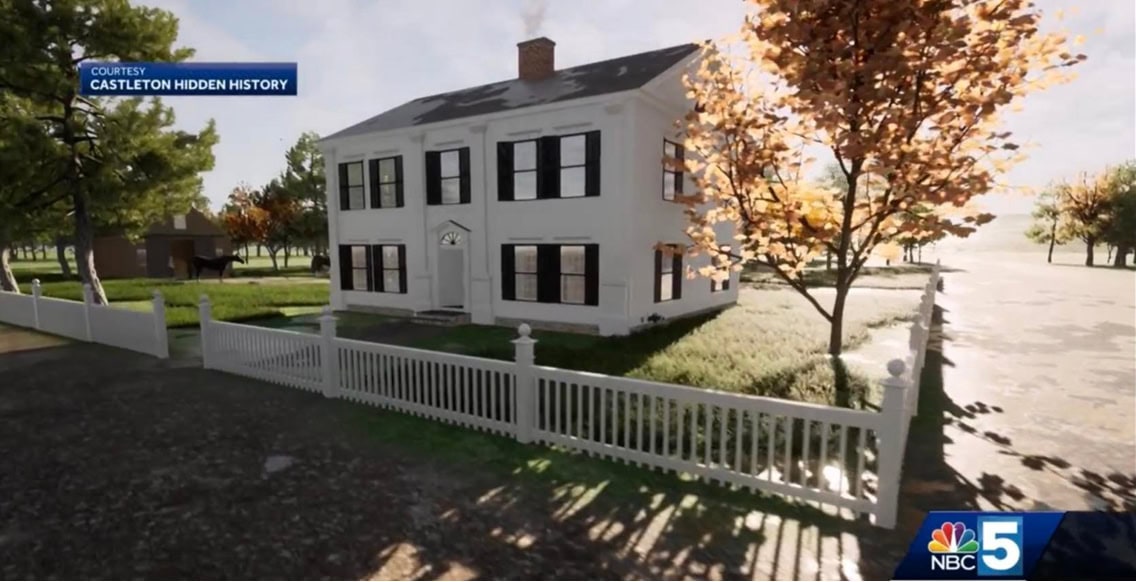The Castleton Hidden History Project highlights a diverse and inclusive history of the Castleton, Vermont, area through collaborative, interdisciplinary research. Ongoing historical, archaeological, and geographical investigations are designed to study the lives and times of Castleton’s residents from the end of the Ice Age to the present day, with an emphasis on the lesser explored histories of local Native Americans, African Americans, and women.
Current project investigations focus on Granger House, a well-preserved early 19th-century home on the VTSU Castleton campus that is listed on the National Register of Historic Places. Ongoing work is studying the home’s potential ties to the Underground Railroad, the daily lives of its occupants, and the dynamic cultural landscape that surrounded the home. VTSU students in programs ranging from Anthropology, Archaeology, and Geography to History and Fine Arts are involved in rich experiential learning opportunities that include archaeological excavations, analyzing artifacts and historical documents, creating GIS maps, and developing museum exhibits.
The Granger House is the future site of the Granger House Museum and Learning Laboratory, which will include engaging interactive exhibits accessible to diverse populations and will serve as a learning laboratory for VTSU undergraduates and local K-12 students.
Volunteers Welcome! Community members are welcome to participate in the archaeological work at Granger House and opportunities are ongoing. For more information about how you can participate, please email HiddenHistory@VermontState.edu and a member of the project will be in touch.
Student Field Trips: We’re excited to share our work with local students and to date have welcomed hundreds of K-12 school students and educators to visit Granger House and experience the excavation site. Teachers, please email HiddenHistory@VermontState.edu to explore a field trip for your students.
The Hidden History Project received initial funding through a grant from the National Endowment for the Humanities Sustaining the Humanities through the American Rescue Plan (SHARP) program. SHARP grants were funded by the American Rescue Plan Act of 2021 and are designed to preserve humanities jobs and support the reopening and rebuilding of humanities programs.
Hidden History Project In The News
- Students take part in Castleton archaeology dig (WCAX)
- Granger House shares findings (Castleton Spartan)
- Students uncover the past in Castleton (Rutland Herald)
- Historic building to be site of new museum (Rutland Herald)
- Artifact Roadshow invites locals to share their unidentified objects (Rutland Herald)





